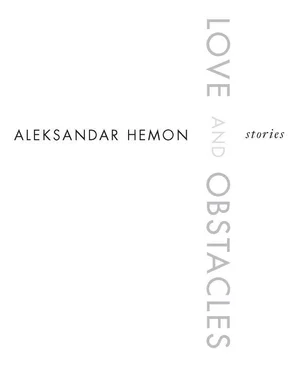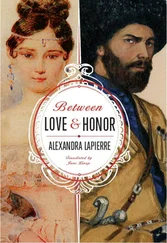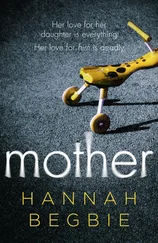Aleksandar Hemon - Love and Obstacles
Здесь есть возможность читать онлайн «Aleksandar Hemon - Love and Obstacles» весь текст электронной книги совершенно бесплатно (целиком полную версию без сокращений). В некоторых случаях можно слушать аудио, скачать через торрент в формате fb2 и присутствует краткое содержание. Издательство: Penguin USA, Inc., Жанр: Старинная литература, на английском языке. Описание произведения, (предисловие) а так же отзывы посетителей доступны на портале библиотеки ЛибКат.
- Название:Love and Obstacles
- Автор:
- Издательство:Penguin USA, Inc.
- Жанр:
- Год:неизвестен
- ISBN:нет данных
- Рейтинг книги:5 / 5. Голосов: 1
-
Избранное:Добавить в избранное
- Отзывы:
-
Ваша оценка:
- 100
- 1
- 2
- 3
- 4
- 5
Love and Obstacles: краткое содержание, описание и аннотация
Предлагаем к чтению аннотацию, описание, краткое содержание или предисловие (зависит от того, что написал сам автор книги «Love and Obstacles»). Если вы не нашли необходимую информацию о книге — напишите в комментариях, мы постараемся отыскать её.
Love and Obstacles — читать онлайн бесплатно полную книгу (весь текст) целиком
Ниже представлен текст книги, разбитый по страницам. Система сохранения места последней прочитанной страницы, позволяет с удобством читать онлайн бесплатно книгу «Love and Obstacles», без необходимости каждый раз заново искать на чём Вы остановились. Поставьте закладку, и сможете в любой момент перейти на страницу, на которой закончили чтение.
Интервал:
Закладка:
I was giddy, scurrying up, thinking of funny things to say, my mind never quite reaching over to the other, funny side. I was giddy and drunk, slipping on the wet pavement and in need of company, and I trotted downhill after them, slipping, yet lucidly avoiding the holes and litter and a garbage container in which garbage quietly smoldered. Once I caught up with them, I just assumed their pace and walked along as straight as I could, saying nothing, which was somehow supposed to be funny too. Macalister uttered an unenthusiastic “Hey, you’re okay?” and the woman said, “Dobro veče,” with a hesitation in her voice that suggested that I was interrupting something delectable and delicate. I just kept walking, skidding and stumbling, but in control, I was in control, I was. I did not know where we were, but they seemed to be headed somewhere.
“Anyway,” Macalister said. “There is blowing of the air, but there is no wind that does the blowing.”
“What wind?” I said. “There’s no wind.”
“There is a path to walk on, there is walking being done, but there is no walker.”
“That is very beautiful,” the woman said, smiling. She exuded a nebula of mirth. All of her consonants were as soft as the underside of a kitten’s paw.
“There are deeds being done, but there is no doer,” Macalister went on.
“What the hell are you talking about?” I asked. The toes of his white socks were caked with filth now.
“Malo je on puk’o,” I suggested to the woman.
“Nije, baš lijepo zbori,” she said. “It is poetry.”
“It’s from a Buddhist text,” he said.
“It is beautiful,” the woman said.
“There is drizzle and there is shit to be rained on, but there is no sky,” I pronounced.
“That could work too,” Macalister said.
The drizzle made the city look begrimed. A couple of glistening umbrellas cascaded downhill toward the scarce traffic flow of Titova Street. At the low end of Dalmatinska, you would take a right, then walk straight for about ten minutes, past Veliki Park and the Alipašina mosque, past the fenced-off vacant lot where the old hospital used to be, and then you reached Marin Dvor, and across the street from the ruin that used to be the tobacco factory used to be the building where I was born.
“You’re okay, Macalister,” I said. “You’re a good guy. You’re not an asshole.”
“Why, thank you,” Macalister said. “I’m glad I’ve been vetted.”
We reached the bottom of Dalmatinska and stopped there. Had I not been there, Macalister would have suggested to the woman that they spend more time together, perhaps in his hotel room, perhaps attached at the groin. But I was there and I wasn’t leaving, and there was an awkward silence as they waited for me to at least step away so they could exchange poignant parting words. I snapped the silence and suggested that we all go out for a drink. Macalister looked straight into her eyes and said, “Yeah, let’s go out for a drink,” his gaze doubtless conveying that they could ditch me quickly and continue their discussion of Buddhism and groin attachment. But the woman said no, she had to go home, she was really tired, she had to go to work early, she’d love to but she was tired, no, sorry. She shook my hand limply and gave Macalister a hug, in the course of which she pressed her sizable chest against his. I did not even know her name. She went toward Marin Dvor.
“What’s her name?” I asked.
Macalister watched her wistfully as she ran to catch an approaching streetcar.
“Azra,” he said.
“Let’s have a drink,” I said. “You’ve got nothing else to do anyway, now that Azra’s gone.”
Honestly, I would have punched me in the face, or at least hurled some hurtful insults my way, but not only did Macalister not do it, he did not express any hostility whatsoever and agreed to come along for a drink. It must have been his Buddhist thing or something.
We went toward Baščaršija—I pointed out to him the Eternal Fire, which was supposed to be burning for the antifascist liberators of Sarajevo, but happened to be out at the moment; then, farther down Ferhadija, we stopped at the site of the 1992 bread-line massacre, where there was a heap of wilted flowers; then passed Writers’ Park, where busts of important Bosnian authors were hidden behind stalls offering pirate DVDs. We passed the cathedral, then Egipat, which made the best ice cream in the world, then the Gazi Husrevbegova mosque and the fountain. I told him about the song that asserted that once you drank Baščaršija water you would never forget Sarajevo. We drank the water; he lapped it out of the palm of his small hand, the water splattering his white socks.
“I love your white socks, Macalister,” I said. “When you take them off, don’t throw them away. Give them to me. I’ll keep them as a relic, smell them for good luck whenever I write.”
“I never take them off,” he said. “That’s my only pair.”
For a moment, I considered the possibility that he was serious, for his delivery was deadpan, no crack signals in the air. It seemed he was looking out at me and the city from an interior space no other human had access to. I did not know exactly where we were going, but he did not complain or ask questions, as though it didn’t matter, because he would always be safe inside himself. I confess: I wanted him be in awe of Sarajevo, of me, of what we meant in the world; I wanted to break through to him, through his chitin.
But I was hungry and needed a drink or two, so instead of wandering all night, we ended up in a smoky basement restaurant whose owner, Faruk, was a war hero—there was a shoulder missile-launcher hanging high up on the brick wall, and pictures of uniformed men below it. I knew Faruk pretty well, for he had dated my sister many years before. He greeted us, spread apart the rope curtain leading into the dining room and took us to our table, next to a glass case with a shiny black gun and a holster.
“Ko ti je to?” Faruk asked as we sat down.
“Pisac. Amerikanac. Dobio Pulitzera,” I said.
“Pulitzer je dosta jak,” Faruk said, and offered his hand to Macalister: “Congratulations.”
Macalister thanked him, but when Faruk walked away, he noted the preponderance of weapons.
“Weapons schmeapons,” I said. “The war is over. Don’t worry about it.”
A waiter, who looked like a twin brother of one of the tray mopes, came by, and I ordered a trainload of food—all varieties of overcooked meat and fried dough—and a bottle of wine, without asking Macalister what he would like. He was vegetarian and didn’t drink, he said impassively, merely stating a fact.
“So you’re a Buddhist or something?” I said. “You don’t step on ants and roaches, you don’t swallow midges and such?”
He smiled. I had known Macalister for only a few hours, but I already knew he did not get angry. How can you write a book—how can you write a single goddamn sentence—without getting angry? I wondered. How do you even wake up in the morning without getting angry? I get angry in my dreams, wake up furious. He merely shrugged at my questions. I drank more wine and then some more, and whatever coherence I may have regained on our walk was quickly gone. I showered him with questions: Did he serve in Vietnam? How much of his work was autobiographical? Was Cupper his alter ego? Was it over there that he had become a Buddhist? What was getting the Pulitzer like? Did he ever have a feeling that this was all shit—this: America, humankind, writing, everything? And what did he think of Sarajevo? Did he like it? Could he see how beautiful it had been before it became this cesspool of insignificant, drizzly suffering?
Читать дальшеИнтервал:
Закладка:
Похожие книги на «Love and Obstacles»
Представляем Вашему вниманию похожие книги на «Love and Obstacles» списком для выбора. Мы отобрали схожую по названию и смыслу литературу в надежде предоставить читателям больше вариантов отыскать новые, интересные, ещё непрочитанные произведения.
Обсуждение, отзывы о книге «Love and Obstacles» и просто собственные мнения читателей. Оставьте ваши комментарии, напишите, что Вы думаете о произведении, его смысле или главных героях. Укажите что конкретно понравилось, а что нет, и почему Вы так считаете.












